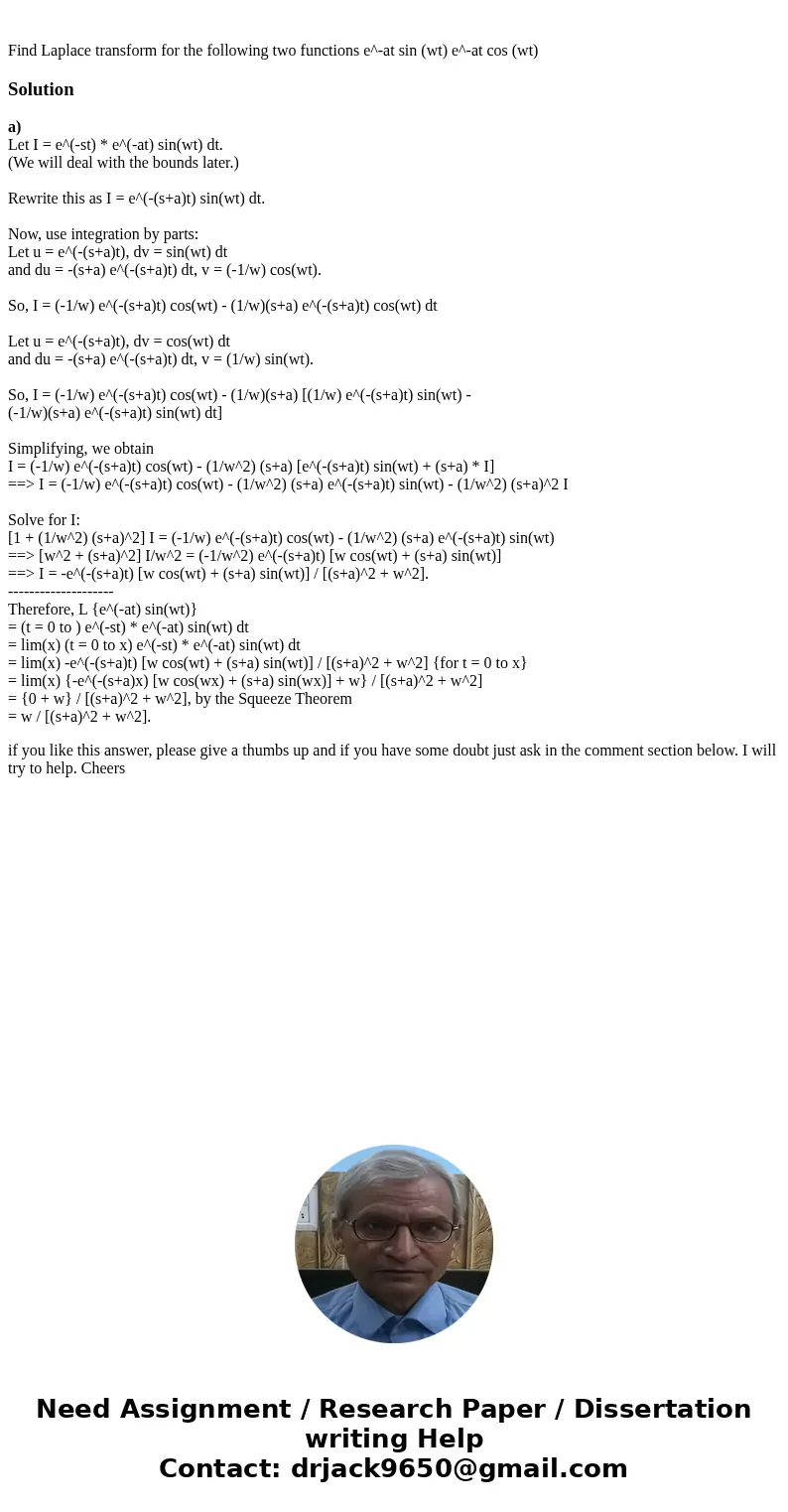Find Laplace transform for the following two functions eat s
Solution
a)
Let I = e^(-st) * e^(-at) sin(wt) dt.
(We will deal with the bounds later.)
Rewrite this as I = e^(-(s+a)t) sin(wt) dt.
Now, use integration by parts:
Let u = e^(-(s+a)t), dv = sin(wt) dt
and du = -(s+a) e^(-(s+a)t) dt, v = (-1/w) cos(wt).
So, I = (-1/w) e^(-(s+a)t) cos(wt) - (1/w)(s+a) e^(-(s+a)t) cos(wt) dt
Let u = e^(-(s+a)t), dv = cos(wt) dt
and du = -(s+a) e^(-(s+a)t) dt, v = (1/w) sin(wt).
So, I = (-1/w) e^(-(s+a)t) cos(wt) - (1/w)(s+a) [(1/w) e^(-(s+a)t) sin(wt) -
(-1/w)(s+a) e^(-(s+a)t) sin(wt) dt]
Simplifying, we obtain
I = (-1/w) e^(-(s+a)t) cos(wt) - (1/w^2) (s+a) [e^(-(s+a)t) sin(wt) + (s+a) * I]
==> I = (-1/w) e^(-(s+a)t) cos(wt) - (1/w^2) (s+a) e^(-(s+a)t) sin(wt) - (1/w^2) (s+a)^2 I
Solve for I:
[1 + (1/w^2) (s+a)^2] I = (-1/w) e^(-(s+a)t) cos(wt) - (1/w^2) (s+a) e^(-(s+a)t) sin(wt)
==> [w^2 + (s+a)^2] I/w^2 = (-1/w^2) e^(-(s+a)t) [w cos(wt) + (s+a) sin(wt)]
==> I = -e^(-(s+a)t) [w cos(wt) + (s+a) sin(wt)] / [(s+a)^2 + w^2].
--------------------
Therefore, L {e^(-at) sin(wt)}
= (t = 0 to ) e^(-st) * e^(-at) sin(wt) dt
= lim(x) (t = 0 to x) e^(-st) * e^(-at) sin(wt) dt
= lim(x) -e^(-(s+a)t) [w cos(wt) + (s+a) sin(wt)] / [(s+a)^2 + w^2] {for t = 0 to x}
= lim(x) {-e^(-(s+a)x) [w cos(wx) + (s+a) sin(wx)] + w} / [(s+a)^2 + w^2]
= {0 + w} / [(s+a)^2 + w^2], by the Squeeze Theorem
= w / [(s+a)^2 + w^2].
if you like this answer, please give a thumbs up and if you have some doubt just ask in the comment section below. I will try to help. Cheers

 Homework Sourse
Homework Sourse